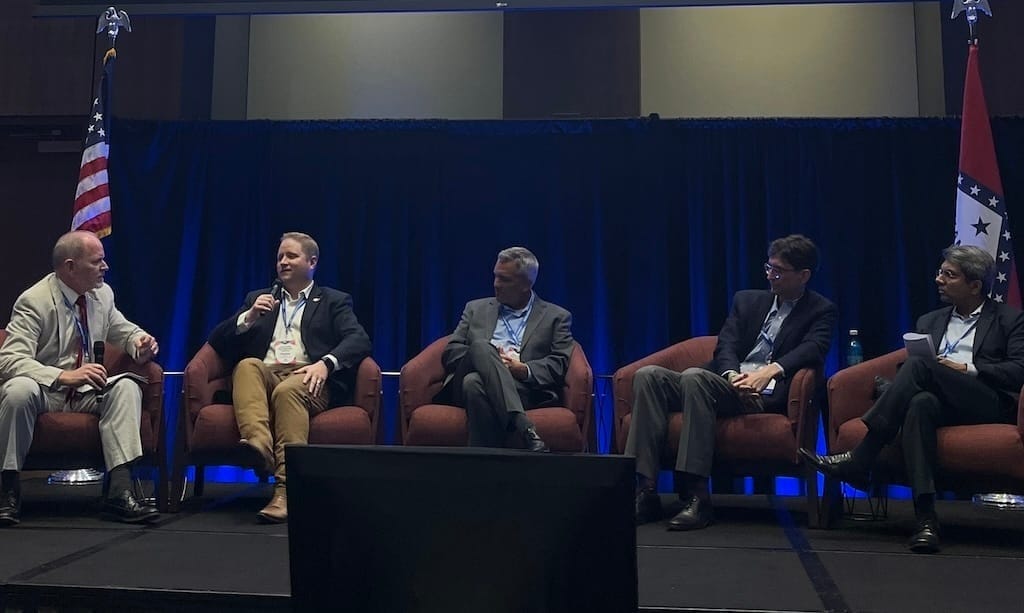Arkansas Calls for Increased Broadband Investment
The state cited $500 million in broadband investments, low tax rates, and proactive connectivity enhancements as reasons for Arkansas.
Michael D. Melero

HOT SPRINGS, Ark., June 26, 2024 – The Arkansas State Broadband Office called for continued collaboration and investment in the state’s broadband future, highlighting its position as a prime location for broadband investment at the Arkansas Broadband Summit on Tuesday.
The office highlighted significant investments in the state of over $500 million from infrastructure grants since 2020, driven by inbound migration, reduced tax rates and proactive connectivity enhancements. These efforts aim to establish Arkansas as a leader in broadband infrastructure within a strategic and business-friendly environment.
“In the second half of 2023, Arkansas had the sixth-highest reduction in unserved, underserved locations in the country,” since 2020 due to these investments, said the Director of the Arkansas State Broadband Office Glen Howie. “It shows that we're moving forward and trying to do it rapidly in a business urgency.”
Howie encouraged broadband investors to consider Arkansas for their business needs, underscoring the office's mission to assist those looking to invest, expand, or relocate. He noted that partnering with the office benefits businesses through strategic initiatives and connectivity efforts, ensuring a supportive environment.
The office holds weekly meetings with providers to offer technical assistance, maintain transparency, and gather feedback during the process. This collaborative approach and commitment to efficiency demonstrate the state's dedication to effective broadband deployment. “Having a relationship with our providers, along with our team’s commitment to minimize red tape, ensures we get it done effectively,” Howie said.
Co-Founder of Quadra Partners Jon Wikins mentioned that within a 500-mile radius in Arkansas, there is approximately $20 billion in Broadband Equity Access and Deployment Program funding available, making the region critical for broadband investment. “Arkansas is ready for BEAD funding with good plans and established offices,” he said, noting that early states like Arkansas will attract providers due to their preparedness and favorable business environment.
The second volume of Arkansas’s BEAD plan, which specifies how the state will conduct its BEAD program, is pending approval by the National Telecommunications and Information Administration. Top NTIA officials aim to get all volume two submissions approved by this fall.
Arkansas is working on an applicant primer, a guide to help potential applicants understand the requirements and processes for participating in BEAD. The document will be released in August and will include the rules for bidding, reference subsidies, and details on how the maps will be used, along with instructions for the application portal.
If the challenge map process is delayed, the office will still release the primer on time and will adjust it with an addendum for reference subsidies if needed, ensuring timely release regardless of the completion of location data.
“Ours is formula-based, so it can fluctuate over time. As the economy improves and people earn more money, it can tick up,” Howie elaborated on low-cost requirements. He assured that all internet service providers applying within Arkansas must offer a low-cost plan option as part of the BEAD program's affordability requirements.









Member discussion